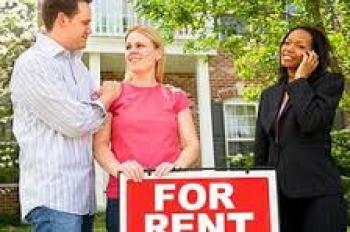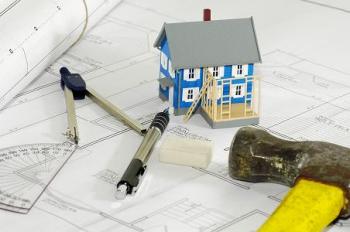
5 QUESTIONS A LAS VEGAS TENANT SHOULD ASK THEIR NEXT LANDLORD
You’re about to close a deal to become a tenant in Las Vegas. The landlord seems like a straight shooter, and the place is a joy: immaculate and welcoming. Now all that’s left is to wait for the landlord’s okay after an evaluation of you as the new Las Vegas tenant, right? Well, not quite. Just as a landlord should check financial or job references as part of their due diligence, you have some to perform for your benefit. It’s up to you to assess the landlord’s system to determine whether this rental arrangement is a good fit you hope it is. Only by asking pertinent questions can you decide whether the landlord’s management style and expectations align with your needs. 1. Do you offer emergency maintenance services? When a plumbing leak becomes uncontrollable, or the heater goes out on a cold winter night, you need maintenance assistance quickly. Find out how quickly your landlord can respond—and how readily he or she answers. An experienced landlord is familiar with the inevitability of maintenance emergencies—and isn’t surprised (or put off) by the question. A great landlord is confident of the system he or she has put in place! 2. What are my maintenance responsibilities? Lease language can be less than precise about the tenant’s responsibilities—most often when it comes to outdoor areas. A lease might vaguely state that the tenant is responsible for general lawn maintenance. Ask your landlord to pinpoint the specifics, and jot down notes that you can refer to later. Some Las Vegas landlords might expect mowing the lawn and weeding planted areas; others might expect you to attend to more, such as lawn treatments. Finding out your landlord’s specific expectations will give you a sense of the upkeep requirements for your end. It can’t help but minimize the possibility of any future conflict. 3. Is there a homeowners association? As a rental tenant, most likely you won’t be responsible for any homeowner’s association dues. However, you might be subject to its rules and regulations. For example, if the association has strict lawn care requirements and you are responsible for garden maintenance, you should know about those details. If your landlord answers yes to this question, ask for a copy of the association rules. 4. What are my responsibilities before I vacate the property? It’s not overly negative to bring up the subject of the end of your Las Vegas tenancy. When you move out of a rental home, you want to leave the property in good condition so that you are not hit with any charges—or see your security deposit disappear without good reason. Find out if your landlord has any specific requirements, such as professional carpet cleaning or filling the holes in the wall. 5. How do I contact you on nights and weekends? Problems with your rental unit do not always occur Monday to Friday, 9 to 5. By asking your landlord for contact information during non-business hours, you get a sense of how accessible he or she is. If he or she willingly gives you a cellphone number, you’ve probably found a landlord who will be easy to work with— and easy to track down should problems arise! My work as a REALTOR® lets me help set the stage for Las Vegas tenants and landlords to create a mutually beneficial relationship. If you are looking to purchase a Las Vegas income property taking advantage of this fall’s very favorable terms, don’t hesitate to give me a call!

BUYING A HOME TO RENOVATE CAN BE A TRUE BARGAINOR NOT
For many decades, Hollywood has made box office gold creating comic films about the hilarious possibilities that nightmarish house remodels present. From Mr. Blandings Builds his Dream House to The Money Pit (and even Under the Tuscan Sun), audiences delight in the shifty tradesmen and rotting timbers that define the genre. If you’re an energetic Do-it-Yourselfer without much remodeling experience, Job One is to gather professional opinions to minimize the likelihood of costly discoveries. But before you even get that far, there are some general concepts that veteran turnaround investors know. These are disqualified that make it much more likely that buying a home in Las Vegas will be a shrewd investment instead of dollar demolisher. Bad house, bad neighborhood Is it worth buying a fixer-upper in a rundown or otherwise somewhat undesirable neighborhood? It can be tempting—especially when the asking price makes buying such a home a seemingly unbelievable value. But ignoring the ‘location, location, location’ truism is risky business. In many cases, such an investment may yield a diamond in the mud—a renewed structure that will never rise in value until the whole neighborhood rises in value (that could never be ). Safer choices will be found in neighborhoods that don’t need remodeling themselves. Bad house, good intentions Buying a home in Las Vegas—especially when the neighborhood is fine, and the price is more than right—can give rise to overly emotional decision-making. It can be tempting, when a property is almost okay, to make an instantaneous decision…but if you find yourself making excuses for this or that drawback, or finding yourself indulging in a bit of wishful thinking here and there, take a breath! Hopeful eyes may easily transform to fixer-uppers into mansions, but that’s the only time ‘easily’ will apply. Buying a home that needs major renovation is a probable mistake for home buyers who are uncertain about the money, time, or construction expertise that lie before them. A realistic mindset is the first ‘tool’ you need as you transform a fixer-upper into a winning investment. Bad house, bad budget Sometimes, buying a Las Vegas home as a fixer-upper seems exciting not for the challenge of the remodel but simply because you can’t afford that much house in any other way. Sure, fixer-uppers offer the tantalizing prospect of more house for less money—but down-to-earth budgeting for big repairs such as a new roof, a cracked foundation, or all-new floors will produce a realistic bottom line. Sometimes less house (but a good house) is the call that yields a lot more restful nights! Bad house, bad house Finally, buying a house that seems like a fixer-upper—but would more accurately be called bulldozer fodder—is pretty easy to avoid. If your home inspector tells you about critical issues with a home’s bones (foundation, roof), infestations, or dangerous wiring issues, it’s most likely one of those. Have faith: your home is out there! Remodels can be (in fact, often are) great investments. With a clear vision and a savvy team, you could be one renovation away from your dream home. Give me a call to check out the best of today’s Las Vegas prospects.

LAS VEGAS HOUSE PRICES MAY BE RISINGBUT NOT BUBBLING
The previous decade’s burst of the real estate bubble, with its plummeting Las Vegas house prices and accompanying economic dislocations, made a lasting impression. For most homeowners, the damage was strictly psychological. The majority weren’t even tempted to sell while Las Vegas house prices were dropping (or hovering below what they darned well knew were way beneath reasonable values). That was a half-decade ago, and since then, prices have been in recovery mode—with gusto. In fact, last year the rises across the nation were so steep that we began to hear grumbling about a new real estate bubble starting to form. The numbers did suggest a rambunctious market: a 20+ month streak of double-digit year-over-year U.S. price appreciation (by August of this year, a 6.5%). For homeowners, any rise in Las Vegas house prices certainly comes as a relief from the emotional distress of seeing sale prices below common sense levels. But having so recently experienced the ‘bubble’ burst, it was easy to begin to worry about the same cycle already in progress…again…? Some good news and a convincing analysis has just been produced from one of our most reliable sources. The author, Mark Liu of CoreLogic, released “Another Look at U.S. Housing Market Conditions” late last month. He thought it time to examine “suggestions that a housing bubble is reemerging” following the release of the latest figures that continue to show improving house prices. Others have discounted the ‘bubble’ formation idea, but this time, Liu brought some unusually clear logic to the discussion. Simply put, he reasoned that since homeowners use their income to pay for home mortgages, in any local market, house prices over the long run can’t be sustained if they grow faster than income. If house prices rise faster than income for a long time, an unstainable ‘bubble’ will have formed (and, of course, will eventually pop). During the last bubble years—January 2005-November 2007— in the largest 50 markets, home prices were more than 10% above sustainable levels. During the bubble’s ‘pop’ (from late 2010 to mid-2013), home prices fell to “levels of less than 10% below the sustainable price.” And even by August of this year, house prices still remained 6% below the long range sustainable price. Not only is this not what anyone would call a bubble. Instead, it seems to lead to the conclusion that prices will have to rise faster. Las Vegas homeowners will be even more pleased with Liu’s forecast through the end of 2016: prices will still remain 3% under sustainable levels—in other words, nothing like a bubble! Whether you’re looking to buy or sell a Las Vegas home, rising prices at sustainable levels is a pretty encouraging action scenario…and a pretty good first action will be to give me a call!
Categories
Recent Posts





